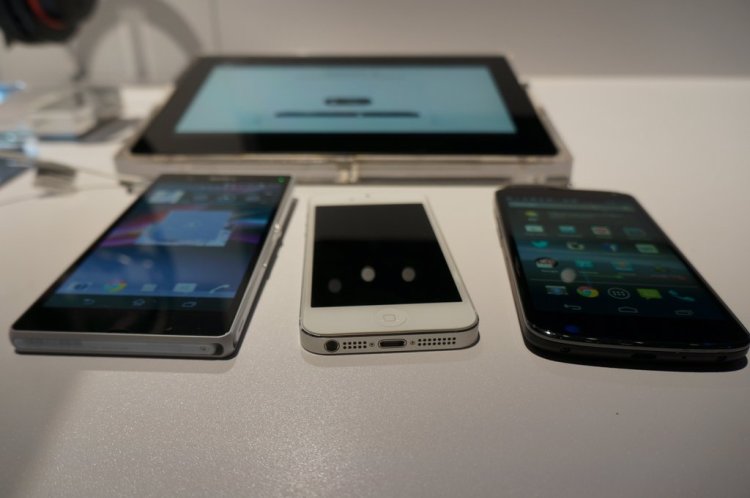Europe
The U.K. is one of the countries with the highest revenue potential, according to Distimo. It has a high average revenue per download at $2.33, and its average cost to acquire a new player is only $1.86.
The country is pretty into iOS. Google Play doesn’t even account for a quarter of the revenue. Many gamers in England spend a lot of time and money on soccer-related releases like Football Manager Handheld 2014 on their iPhones and iPads. That Sega-published coaching simulator makes 65 percent of its total cash in the U.K.
Other territories, like France and Germany, are growing as well.
“We’ve definitely seen significant growth for Europe both from an audience-monetization and publisher-success point of view,” said Sanchez. “Germany and the U.K. are both very strong in terms of revenue for iOS and Google Play, and the two top iOS game publishers by revenue — King and Supercell — are both based in Europe.”
The big issue with Europe is that geography and language break it into tiny fragments. That means it requires significantly more work to localize and optimize a game for the several different countries of Europe compared to simply releasing a game in the U.S.
“In Japan, Korea, and China, games are tailored specifically to each market since they are particularly large,” said Sanchez. “Publishers seeking wide international audiences tend to focus on the US and English-speaking markets, as this gives them a much broader reach. As a consequence, there are not many games that are tailored to the non-English speaking European markets.”
The future
Android and iOS look like they will continue to battle it out all around the world, and gaming will likely always play a big role in that. In fact, as more nations start adopting smartphones, the importance of interactive entertainment will only expand.
In 2013, countries like Brazil and Russia emerged as potential mobile-gaming superpowers. On Google Play in 2013, Brazil was No. 2 in terms of total downloads while Russia was No. 3. Despite that, neither charted near the top in terms of spending, but these are the markets of tomorrow, and they seem like they’re on an Android path as each country ranks much lower on iOS’s top-downloads list.
“For Africa, we noted in the Q1 Market Index a rise in iOS revenue in South Africa, where revenue has really taken off in the last few months,” said Sanchez. “In many other African nations, device adoption is likely to lag behind due to economic circumstances, and they are therefore not likely to be major markets at this stage.”
So, who’s really winning?
Brazil, Russia, and China (the BRC in “BRIC nations”) are the next major markets, and Android — with its variety of inexpensive handsets — has an advantage in places like that compared to Apple’s pricier offerings.
Google’s Android might have a bright future, but that doesn’t mean iOS doesn’t. As long as established markets like the U.S. keep making iOS developers more money, you can expect that the content will keep flowing toward Apple first.
So when it comes down to who is winning between Apple and Google when it comes to games. That answer is perhaps a bit too complex and ever-changing. What’s clear is that developers have a pair of legitimate platforms to release content on, and gamers — with a few exceptions — can’t go wrong when choosing between the two.
VentureBeat's mission is to be a digital town square for technical decision-makers to gain knowledge about transformative enterprise technology and transact. Learn More






![Reblog this post [with Zemanta]](http://img.zemanta.com/reblog_e.png?x-id=cbcb43f4-d91e-4983-9e43-df43f8c282dd)
